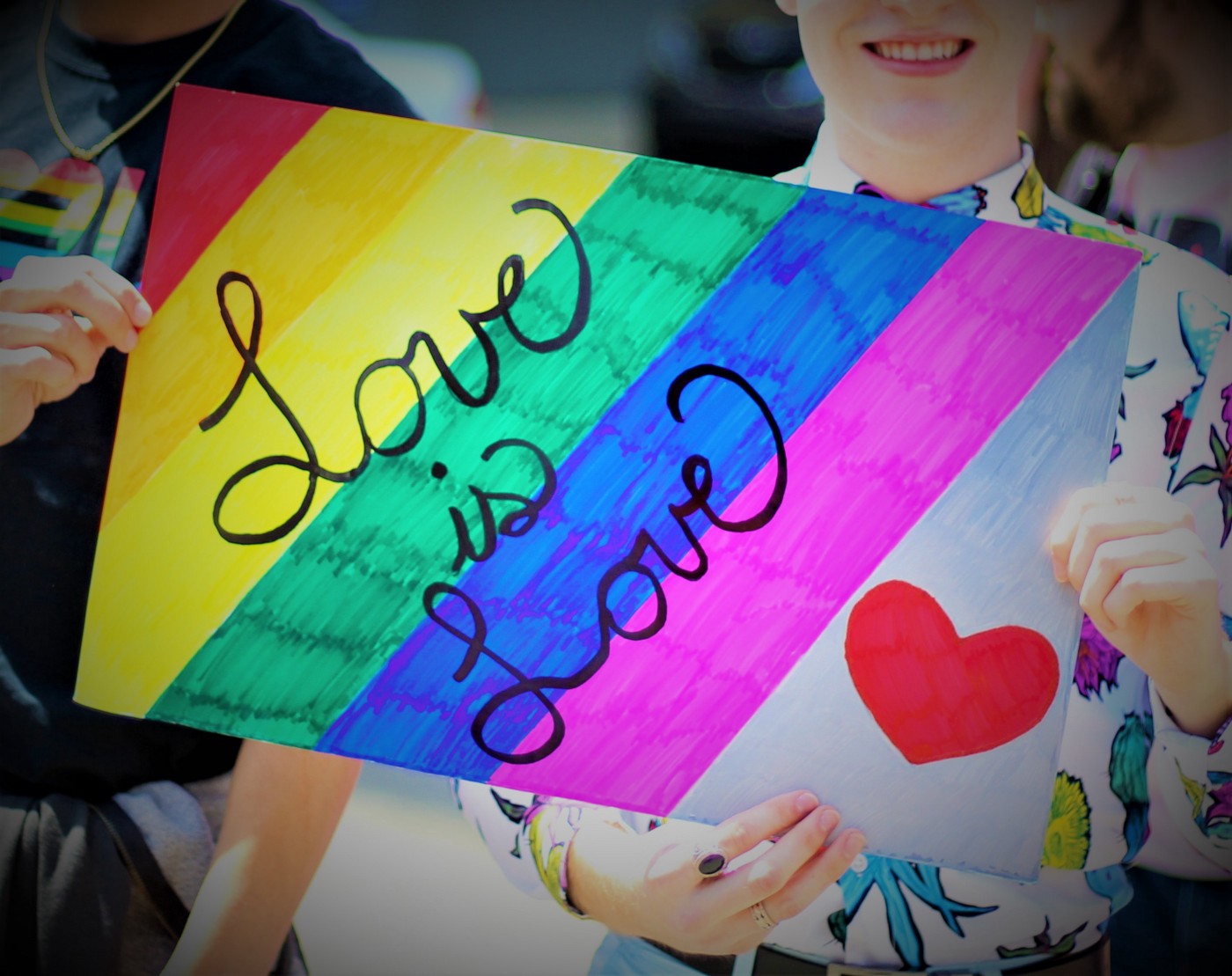
Yesterday was the last day of Pride Month, the 30-day celebration dedicated to our LGBTQ communities. The rainbow flags are coming down, and we’ve finally managed to unknot that hair tinsel and scrub off the last of that iridescent body paint that looked so fly on Insta. But now that the festivities are over, it’s time for a moment of reflection on what’s it’s really all about — a hard-fought battle with many casualties. Oh yea, and the fact that there are still no federal laws explicitly protecting LGBTQ people from overt discrimination.
Pride and Reverence
No doubt about it — Pride is a blast. It’s among the most joyful celebrations from the most jubilant group of people that you’ll ever see, and that’s a wonderful thing regardless of anyone’s personal opinions to the contrary. However, Pride is not just a time to celebrate the breaking of the shackles of oppression that society has clamped on the LGBTQ community for generations; it’s also a time for somber remembrance of the brutality of the abuse that these people have suffered under legal regimes that attempted to repress their very existence.
June marks the anniversary of multiple LGBTQ events. It commemorates the beginning of the PRIDE movement, recognizes the impact that LGBTQ individuals have had throughout history and, raises awareness for the impacts of HIV/AIDS. Sadly, it is also a memorial for members of the community who were lost to hate crimes — particularly the Stonewall Inn riots of 1969.
When the first gay and trans-friendly bars and clubs began to pop up in the early ’60s, it was relatively common for police to raid them more-or-less indiscriminately. On June 28, 1969, one particular group of patrons at one such establishment had had enough. The night of the Stonewall Inn riot, the patrons at the LGBTQ-friendly establishment stood their ground, refusing to be bullied unfairly by the police. Chaos followed, then violence. There were arrests, mistreatment, and injuries among both the customers and police. The riot lasted for four nights but its impact has lasted for decades.
Making Love a Crime
As strange as it may seem today, our parents’ generation had to deal with a slew of laws that criminalized sexual activity between consenting adults. This made many homosexual acts of intimacy — and thus, romantic relationships — a crime punishable by law. And just to blow your mind even further, the Supreme Court did not officially come out against these crazy laws until 2003.
In Lawrence v. Texas, the Supreme Court struck down a Texas statute that had made it a crime for two persons of the same gender to engage in intimate sexual conduct. Several other states had already passed (and overturned) such laws by the turn of the millennium, but Texas fought hard for its right to systematically oppress the gay and lesbian community. Fortunately, by the time Lawrence was decided in 2003, the Supreme Court was finally willing to recognize that such an absurdly invasive policy violated constitutional Due Process.
Our liberties under the Due Process Clause give everyone the right to engage in whatever sexual conduct they desire without the intervention of the government. Furthermore, it requires the government to apply laws equally to everyone. This policy was challenged again with the Defense of Marriage Act and yet another Supreme Court challenge — the United States v. Windsor. In this case, the Court struck down a major portion of the law that overtly discriminated against homosexual couples and forced the government to recognize at least some same-sex marriages.
LGBTQ Rights (and Lack Thereof)
Meaningful progress has been made since the early days of the LGBTQ rights movement.. In 1998, former President Clinton issued Executive Order 13987 expanding on equal opportunity employment rights within the federal government and prohibiting discrimination based on sexual orientation. In 1999, President Clinton signed Proclamation №7203 creating Gay and Lesbian Pride Month. Proclamation №8387 issued by President Obama in 2009 made LGBTQ Pride Month what it is today.
Hate crimes based on sexual orientation or gender identity are also punishable by federal law under the Matthew Shepard and James Byrd, Jr. Hate Crimes Prevention Act of 2009. Both of the named individuals were murdered in 1998 as a result of their gender-identities or sexual orientations. Notably however, the bill also covers hate crimes related to race, color, religion, and national origin of the victim; as a result, it is more of a crime prevention policy than an express articulation of LGBTQ rights.
All fifty states have legalized gay marriage, and landmark Supreme Court cases have created laws that support the practice. But short of the progressive leanings of a few Supreme Court Justices, America has no national law on the books that supports equal rights for LGBTQ people. As a result, in many jurisdictions, it’s perfectly legal to discriminate against LGBTQ people in the workplace, housing, public accommodations, healthcare, and schools. This is why Texas and North Carolina were able to pass their bathroom bills: two recent notable anti-LGBTQ policies that banned transgender people from using the bathroom or locker rooms that align with their identity and refused to allow municipalities to govern on the issue. And while equal rights advocates are clamoring for change, the Trump administration has taken steps to make life harder for a community already experiencing systematic oppression.
President Trump Loves the LGBTQ Vote, Hates the LGBT Community
Just a few days ago, Trump and his administration made a great PR move when they sent out a single Tweet to declaring the president’s alliance. However, because it came after years of him promoting LGBTQ discrimination efforts, it has been met with a heaping measure of skepticism.
President Trump has made the oppression of the LGBTQ community a more-or-less official policy. Well, at least in my opinion — and in the opinion of the Human Rights Campaign.
The official Tweet from the Trump White House claims that his campaign launched a global initiative to decriminalize homosexuality — when in fact, his administration has undertaken serious efforts to discriminate against our LGBTQ neighbors. The Trump Administration placed bans on transgender people serving in the military, rescinded Obama memos that provided federal funding to protect trans workers and students from discrimination, challenges birthright citizenship of gay and lesbian parents’ children who were conceived and born in other counties, even when the parents are U.S. citizens. He’s also placed two new conservative justices on the Supreme Court with histories of hostility towards LBGTQ rights.
But why?
American People — Not Laws — Embrace the LGBTQ Community
The majority of the country — republicans and democratic alike, the old and the young alike, and even most people who identify as religions — agree that LGBTQ people deserve the same rights and protections as everyone else. So, what’s the hold upon a change in law? Oh yea — it’s because President Trump and the Republican Party are actively fighting to maintain LGBTQ oppression as the status quo.
Our federal system refuses to conform with our modern culture and to inclusively provide protections for all American people. Our landmark civil rights laws do not apply to gay and transgender individuals, but by all means they absolutely should. The Equal Employment Opportunity Commission agrees, but the Trump Administration has pushed back.
The Trump Administration is feverishly trying to buttress the floodgates of a movement that is already bursting with power. But it’s not going down without a fight.
Fighting for Equality
The U.S. House of Representatives recently passed the Equality Act “[t]o prohibit discrimination on the basis of sex, gender identity, and sexual orientation, and for other purposes.” This bill puts LGBTQ nondiscrimination protections in place, and it was recently referred to the Senate for a final vote to be made into law. Unfortunately, the law is stuck in Committee, where it is expected to die due to the lack of Republican support.
Republican lawmakers have framed the issue of LGBTQ rights in religious rights terms. They argue that allowing LGBTQ people rights would suppress religious people from expressing their views about sexuality and gender. Rather than pass a law that treats LGBTQ people equally with all the rest of us, Republican lawmakers are proposing a “compromise” to the Equality Act that would allow a religious exemption to the law’s anti-discrimination terms. This exemption essentially makes the Equality Act meaningless — and not to mention creates a confusing entanglement of church and state.
Until we get our top political officials to support equality for all, America’s LGBTQ community will still have to fight for the basic freedoms, liberty, and pursuit of happiness that the rest of us take for granted. This is an unacceptable state of affairs, and now that the Pride celebrations have subsided the real work can begin.





About The Author: Samantha Joule Fow
Samantha Joule Fow is a sought-after technical writer and a successful multi-business entrepreneur who is trusted for her research and communications services to clients across the public and private sector. Her background in environmental law and her love for the outdoors led her to author the book "Be Decent - Environmental Activism 2.0".
More posts by Samantha Joule Fow